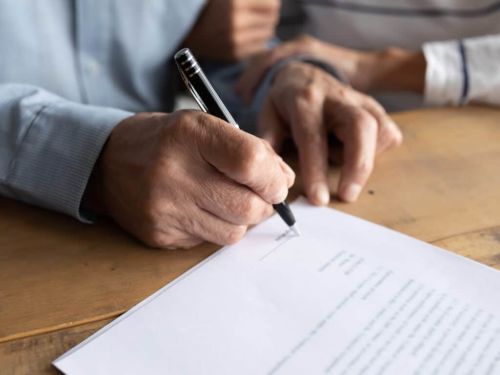Menu
Could My Cosigner Be Liable For Debts I Cannot Repay?
December 29th, 2020

Let’s face it: Be it student loans, a new car, or even a home emergency that requires a loan to pay for the damage, sometimes you need a cosigner to pull you through. However, if you decide to file for bankruptcy, can your cosigner be responsible for those debts remaining on the loan? We know that 4 in 10 cosigners must make payments on debts that they have cosigned on simply because the borrower fell behind--but how does bankruptcy complicate the cosigning process? The Jones Law Firm explains.
Cosigners and Bankruptcy: What You Need To Know About Liability
Many people do not realize that if you have a cosigner or guarantor on a loan, your decision to file for bankruptcy will impact them. For example, when you fall behind on payments, a cosigner is equally responsible for each payment whereas the guarantor is only liable if the borrower fails to fulfill the payment obligation. So what does this mean if you file for bankruptcy? When you file for bankruptcy, the bankruptcy discharge only eliminates your obligation to pay some debts. However, it doesn’t impact the liability of the cosigners and guarantors; what is impacted is how much protection they will receive when you file which will depend on if you file for Chapter 7 or Chapter 13 bankruptcy. Under Chapter 7 bankruptcy, the automatic stay does not cover cosigners or guarantors. This means that creditors can come to them to pursue debt collection. However, there are some things you can do to protect them:- Reaffirming debts (Returning the item to debt has been accumulated for. This includes cars, jewelry, etc.)
- Pay off the debt.
- The cosigner or guarantor received a benefit for the creditor’s claim.
- You aren’t going to pay the debt off in full through your repayment plan.
- The creditor will suffer irreparable harm if the automatic stay remains intact.
Bankruptcy and Cosigners: The Jones Law Firm
The Jones Law Firm is here to help you navigate the bankruptcy process for those who have cosigners or guarantors on some debts. Contact Columbus, Ohio bankruptcy attorney Michael Zelasko for a free consultation that will give you an idea of the form of bankruptcy that is right for you, and if now is the right time to file. The Jones Law Firm serves clients in Reynoldsburg and Columbus, Ohio, and throughout the Franklin County area.Categories: General Bankruptcy

